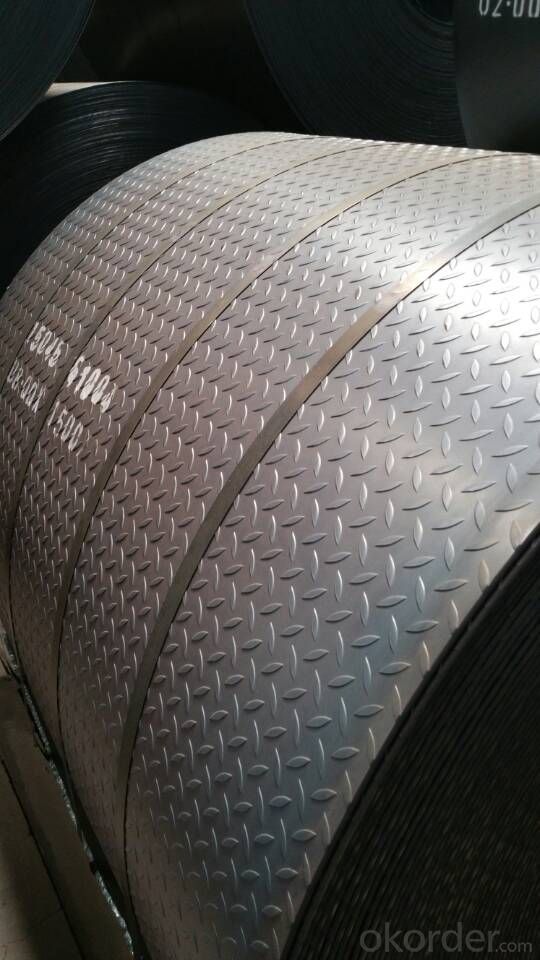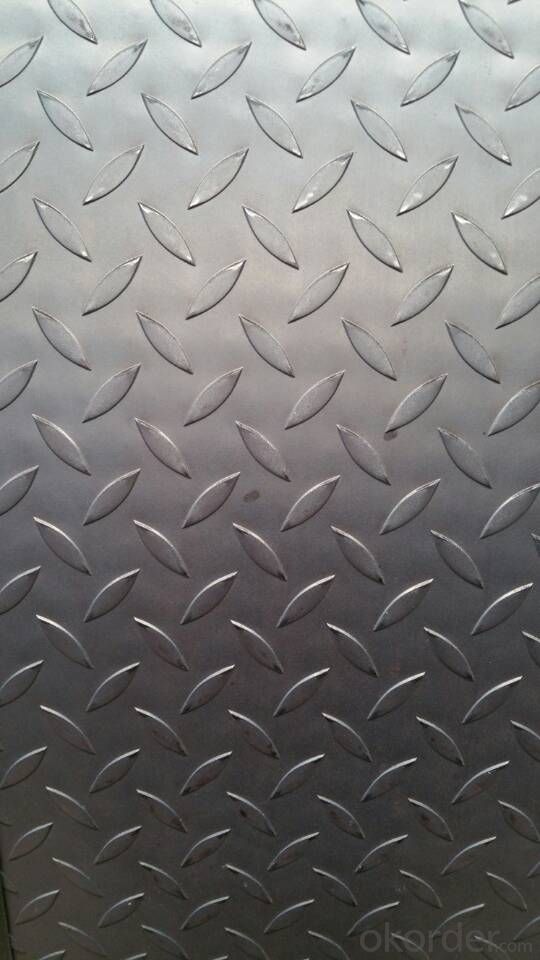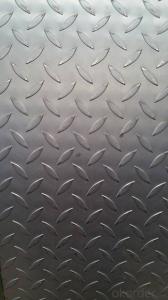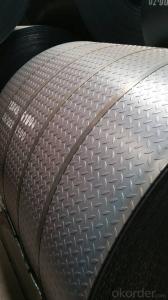HR Q235 Hot Rolled Steel Plates Alloy Steel Sheets
- Loading Port:
- Tianjin
- Payment Terms:
- TT OR LC
- Min Order Qty:
- 25 m.t.
- Supply Capability:
- 50000 m.t./month
OKorder Service Pledge
OKorder Financial Service
You Might Also Like
Item specifice
HR Q235 Hot Rolled Steel Plate High Alloy Steel Sheet
Product Description:
1.Q235 hot rolled steel plate and sheet with high strength
2. Thickness:8mm-250mm, width:1500mm-2250mm
3.ISO and BV certificate
4.Standard:GB/T 3274-2007,JIS G3106,DIN17100, ASTM, BS4360
5.Delivery condition: According to the requirements of customers, the carbon steel mild steel plate and sheet could be hot rolled, cold rolled, normalized, annealed, tempered, normalized+ tempered and tempering.
6.Application:The low alloy steel plate and sheet with high strength is mainly used in making Plants, general constructions, different kinds of engineering machines such as electric wheels skip, mine car, excavator, loaders, bulldozers, industrial blower, various cranes used in mines and other structures.
Specification:
Material | Q235 | Round bar | Dia(mm) | 16-600 |
Process | EAF + LF + VD + Forged + Heat Treatment (optional) | Length (mm) | Max 12000 | |
Heat treatment | Normalized / Annealed / Quenched / tempered | Flat bar | Thickness(mm) | 8-500 |
Delivery condition | Hot forged +Rough machined (black surface after Q/T)+ Turned (optional) | Width(mm) | 70-200 | |
Test | Ultrasonic test according to SEP 1921-84 D/d | Length (mm) | Max 12000 |
Chemical Composition:
C | Si | Mn | Cr | Ni | Cu |
0.5~0.8 | 0.17~0.37 | 0.25~1.2 | ≤0.25 | ≤0.30 | ≤0.25 |
Packing and Delivery:
Packing in bundle with steel strips and shipped by break bulk vessel or container (depend on target market and different ports)
Delivery Detail: Approx.45 days
Usage and Applications:
1.Q235 Hot Rolled Steel Plate High Alloy Steel Sheet is used in a large number of architectural and engineering structures. Or it can be used in construction of plants for the production of steel house frames, high-voltage transmission towers, bridges, vehicles, boilers, containers, ships, etc.
2. And we can use this kind of product on the performance of the mechanical parts if the demand is not very high.
3. Some especial material steel round bar can be used for main shaft of steamer, hummer shank, with big section and supper force.
Product Show:


- Q:How does stainless steel contribute to the production of medical implants?
- Stainless steel contributes to the production of medical implants primarily due to its exceptional properties such as corrosion resistance, high strength, biocompatibility, and ease of sterilization. These qualities make stainless steel an ideal material for manufacturing various medical implants like joint replacements, bone plates, screws, and dental implants.
- Q:What are the main factors affecting the formability of special steel?
- The main factors affecting the formability of special steel include the composition of the steel, its microstructure, temperature, strain rate, and the presence of impurities or defects. These factors influence the ability of the steel to deform without cracking or fracturing during the forming process. Additionally, the mechanical properties, such as the yield strength and ductility, also play a significant role in determining the formability of special steel.
- Q:How is special steel protected against corrosion?
- Special steel is protected against corrosion through a variety of methods, including the application of protective coatings such as zinc or epoxy, the use of corrosion-resistant alloys in the steel composition, and the implementation of cathodic protection systems that involve the use of sacrificial anodes or impressed current to prevent rusting.
- Q:How does special steel perform in high-temperature fatigue?
- Special steel is renowned for its outstanding performance in conditions of high-temperature fatigue. When exposed to elevated temperatures, special steel demonstrates qualities such as remarkable strength, exceptional resistance to creep, and superior thermal stability. These characteristics render it highly dependable and capable of enduring extended periods of exposure to extreme temperatures without significant deterioration in performance. One of the key factors contributing to special steel's exceptional performance in high-temperature fatigue is its distinct composition. Typically, it contains alloying elements like chromium, molybdenum, and vanadium, which enhance its strength at high temperatures and resistance to thermal fatigue. These alloying elements create stable carbides and nitrides that aid in preserving the material's structural integrity even under intense heat and cyclic loading. Furthermore, special steel undergoes specialized heat treatment procedures, such as quenching and tempering, to further enhance its properties in high-temperature fatigue. These treatments augment the material's microstructure, resulting in increased strength, toughness, and resistance to thermal fatigue. In conditions of high-temperature fatigue, special steel exhibits remarkable fatigue strength and durability, even when subjected to cyclic loading at elevated temperatures. Its high-temperature fatigue limit surpasses that of regular steel significantly, enabling it to withstand repetitive stress and strain without experiencing premature failure. This makes special steel an ideal choice for applications involving high-temperature environments, such as gas turbines, heat exchangers, and aerospace components. To conclude, special steel delivers exceptional performance in high-temperature fatigue conditions due to its unique composition, specialized heat treatment processes, and superior mechanical properties. Its high strength, resistance to creep, and thermal stability make it a reliable and long-lasting material for applications requiring prolonged exposure to extreme temperatures.
- Q:What are the properties of corrosion-resistant steel?
- Corrosion-resistant steel, also known as stainless steel, possesses several properties that make it highly resistant to corrosion. These properties include a high chromium content, which forms a protective oxide layer on the surface of the steel, preventing further corrosion. Additionally, it contains varying amounts of other elements such as nickel, molybdenum, and nitrogen, which further enhance its corrosion resistance. Stainless steel is also known for its durability, strength, and ability to withstand extreme temperatures and harsh environments. Overall, these properties make corrosion-resistant steel a reliable and long-lasting material for various applications in industries such as construction, automotive, and aerospace.
- Q:What are the different forging techniques used for special steel?
- Some of the different forging techniques used for special steel include open die forging, closed die forging, and ring rolling. Open die forging involves shaping the steel by hammering it between flat dies or anvils. Closed die forging, also known as impression die forging, utilizes dies that contain specific shapes to mold the steel into the desired form. Ring rolling is a technique used to produce seamless rings by shaping the steel through a combination of axial compression and radial expansion. These forging techniques allow for the production of high-quality and complex special steel components with desired properties and shapes.
- Q:How is high-strength steel used in the automotive industry?
- High-strength steel is widely used in the automotive industry for its ability to enhance the safety and performance of vehicles. It is used in various components such as the frame, chassis, and body structure to improve structural integrity, reduce weight, and provide better crash protection. Additionally, high-strength steel allows automakers to design vehicles with improved fuel efficiency and increased load-carrying capacity, making it a crucial material in modern automotive manufacturing.
- Q:What are the properties of corrosion-resistant stainless tool steel?
- Corrosion-resistant stainless tool steel possesses a unique combination of properties that make it highly desirable for various applications. Firstly, it exhibits excellent resistance to corrosion, even in harsh and corrosive environments, due to the presence of chromium in its composition. This property helps prevent the formation of rust and other forms of corrosion, enhancing the durability and longevity of the steel. Additionally, corrosion-resistant stainless tool steel is known for its high strength and hardness, allowing it to withstand heavy loads and resist deformation under extreme conditions. Moreover, it offers good toughness and wear resistance, making it suitable for cutting, shaping, and forming tools. These properties make corrosion-resistant stainless tool steel an ideal choice for industries such as automotive, aerospace, and manufacturing, where resistance to corrosion and mechanical strength are crucial requirements.
- Q:What are the requirements for special steel used in transportation equipment manufacturing?
- The requirements for manufacturing special steel used in transportation equipment are diverse and depend on the specific application. However, there are common requirements that apply universally. First and foremost, transportation equipment requires special steel that is strong and durable. It must withstand the demanding conditions of transportation, including heavy loads, vibrations, and impacts. To ensure the safety and structural integrity of the equipment, high tensile strength and toughness are essential. Secondly, the special steel must have excellent resistance to corrosion. Transportation equipment is exposed to different environmental factors like moisture, salt, chemicals, and extreme temperatures. Corrosion can weaken the steel and compromise the equipment's performance and lifespan. Therefore, it is crucial to use corrosion-resistant special steel to ensure durability and reliability. In addition, the special steel used in manufacturing transportation equipment should be easily weldable and formable. It should be capable of being shaped and joined together efficiently through welding or other methods. This allows for the production of complex structures and components, enabling the manufacturing of transportation equipment with intricate designs and specifications. Furthermore, the special steel should have good resistance to fatigue. Fatigue failure can occur due to repeated loading and unloading cycles, which are common in transportation equipment. The special steel should be able to withstand these cycles without developing fatigue cracks or failing, ensuring the long-term reliability of the equipment. Lastly, special steel used in transportation equipment manufacturing must meet industry standards and regulations. Depending on the specific application and region, there may be legal requirements and safety standards that need to be met. This can include certifications like ISO, ASTM, or other relevant standards to ensure the quality and performance of the steel. In summary, the requirements for special steel used in transportation equipment manufacturing include high strength, durability, corrosion resistance, good weldability and formability, fatigue resistance, and compliance with industry standards. Meeting these requirements is crucial to ensure the safety, reliability, and longevity of transportation equipment.
- Q:What are the different surface treatments available for special steel?
- There are several different surface treatments available for special steel, including galvanizing, electroplating, powder coating, painting, and heat treatment. These treatments are used to enhance the appearance, corrosion resistance, hardness, and overall performance of the steel, depending on the specific requirements of the application.
1. Manufacturer Overview |
|
|---|---|
| Location | |
| Year Established | |
| Annual Output Value | |
| Main Markets | |
| Company Certifications | |
2. Manufacturer Certificates |
|
|---|---|
| a) Certification Name | |
| Range | |
| Reference | |
| Validity Period | |
3. Manufacturer Capability |
|
|---|---|
| a)Trade Capacity | |
| Nearest Port | |
| Export Percentage | |
| No.of Employees in Trade Department | |
| Language Spoken: | |
| b)Factory Information | |
| Factory Size: | |
| No. of Production Lines | |
| Contract Manufacturing | |
| Product Price Range | |
Send your message to us
HR Q235 Hot Rolled Steel Plates Alloy Steel Sheets
- Loading Port:
- Tianjin
- Payment Terms:
- TT OR LC
- Min Order Qty:
- 25 m.t.
- Supply Capability:
- 50000 m.t./month
OKorder Service Pledge
OKorder Financial Service
Similar products
New products
Hot products
Related keywords





























